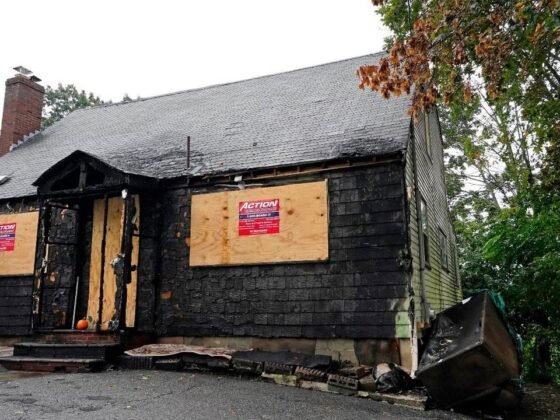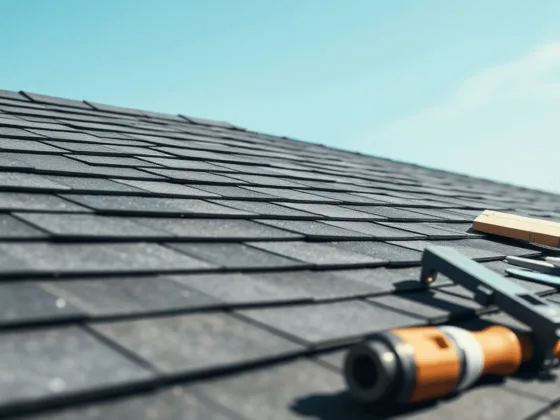Table of Contents Show
If you’ve been thinking of putting up a fence around your home, but you’re not quite sure on what materials to go for, take a pause to read this article. A fence installation offers a lot of great benefits for your house and your family.
A fence can improve your yard’s aesthetical value and enhance protection and privacy. Your kids and even pets can play around within your property without you having to fear something bad might happen to them constantly.
However, with so many styles and fence material types, the decision-making process can be overwhelming. You need to have some criteria or guidelines so you’ll know what aspects and variables to consider when finally making a selection.

Here are some tips for applying for when you’re perplexed on what fence materials to go for:
1. Set Your Goals First
To begin with your fence material selection journey, your initial step is to think about why you’re getting them in the first place.
Establish your goals and distinguish their purpose. Some families decide on them for the sole purpose of protecting the property from outsiders or to keep their dogs from going outside.
Some families put out fences to improve their home’s curb appeal, and some wish for more privacy while they spend more time in the yard.
When you think about why you want a fence, you’ll have an idea of what materials would be best for your home. Answer this question and let it guide you when choosing a wood or vinyl fence or any material you might want.
2. Take Into Account Your Home Design
You can easily identify which fence type not to use based on the architecture of your home. If you have a classic and traditional home, it would be preferable to match fence materials that would complement your home design.
Brick fences or ornamental metal fences complement older, classically designed homes, while wood or vinyl fences complement a contemporary ranch home.
You can do your research or ask for professional advice from Timber Ridge Fence Company if you can’t quite decide for yourself. Overall, choose fences that can improve your home’s exterior.
Read Also:
3. Consider the Weather and Climate in Your Area
Another factor to consider is your geographic location since this will determine the climate condition you’ll mostly have. Choose fence materials that can withstand heavier rain or typhoons if you live in a city prone to calamities.
However, if your home is near the ocean, it’s best to avoid metal or steel fences as they could rust over time. Check out your annual weather forecast to match the suitable fencing materials for your home.
4. Consider Your Budget
There are different costs associated with fencing materials. You should set a budget before contacting local fence retailers. There are effective ways to stick to your budget.
It would help to take out your measuring tape and calculate the size of your entire property. In this way, you can anticipate how much materials you’ll need.
You should also be familiar with the costs of each fencing material, so you can come up with an estimated cost. Some materials may cost cheaper, but having a more expansive property will still cost a lot. Make sure to set a budget for everything included in the fence installation project.
These numbers may also be affected by factors such as the type and size of your fence and the slope of your yard. Furthermore, professional installers also charge fees differently.
If you choose to purchase your own materials, you will only have to pay for labor. Consider different scenarios and compare which method will be most ideal for you.
Also, consider your time, energy, and efforts when setting up a budget, as sometimes, doing tasks yourself might mean you can save money but will take up most of your time. This somehow still results in money wasted, since you can’t work or do other more important tasks.
5. Consider the Costs Later On
You shouldn’t just focus on the price of this fence today. You should also factor in how much you’ll need to spend on them in the future. Factor in their longevity and how often you’ll need to repair or replace some parts.
If the materials are sensitive to the weather and other external conditions, you can expect to shell out more budget every couple of months later.
6. Think About Their Maintenance Requirements
Some fence materials require minimal to almost no maintenance requirements. Take this consideration when choosing suitable materials.
For instance, vinyl or aluminum might not experience stains nor discolorations compared to wood or other materials.
Try to weigh these factors and decide which material won’t take up so much of your time to maintain their upkeep and aesthetics.
Conclusion
Choosing the perfect fence materials doesn’t have to be a burdensome task. By considering the tips mentioned in this article, you’ll gain more confidence knowing that your fence will last longer, stay durable, and enhance your home’s curb appeal.










